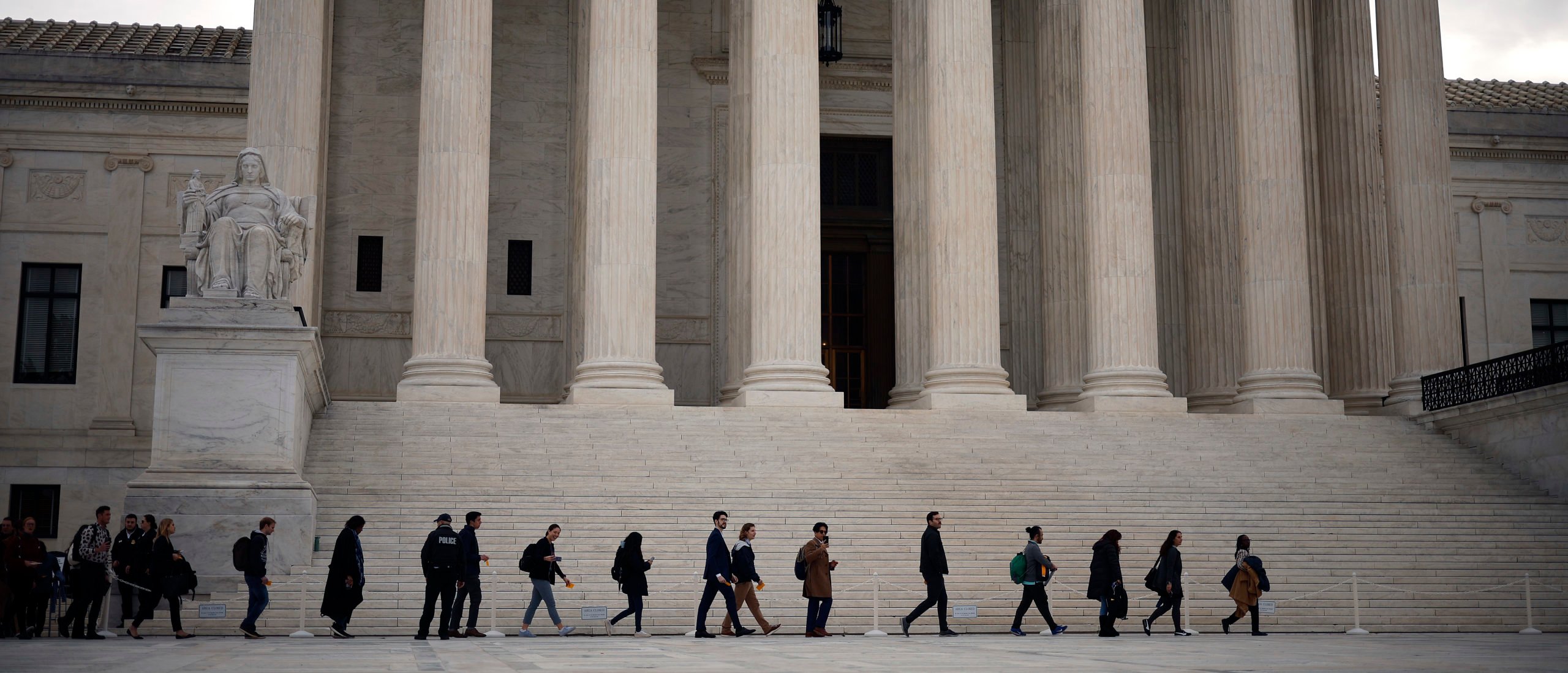The Supreme Court ruled Thursday to block affirmative action in two closely watched lawsuits against Harvard and the University of North Carolina (UNC).
The cases, initially brought by a coalition of students, prospective applicants and their parents in 2014, challenged the universities’ use of racial preferences during the admissions process.
“Harvard’s and UNC’s admissions programs violate the Equal Protection Clause of the Fourteenth Amendment,” the Supreme Court ruled in a 6-3 decision in the UNC case and a 6-2 decision in the Harvard case, which Justice Ketanji Brown Jackson recused herself from.
Chief Justice John Roberts wrote the majority opinion, joined by Justices Clarence Thomas, Samuel Alito, Neil Gorsuch, Brett Kavanaugh and Amy Coney Barrett.
“A benefit to a student who overcame racial discrimination, for example, must be tied to that student’s courage and determination,” Roberts wrote. “In otherwords, the student must be treated based on his or her experiences as an individual—not on the basis of race.”
“Many universities have for too long done just the opposite,” he continued. “And in doing so, they have concluded, wrongly, that the touchstone of an individual’s identity is not challenges bested, skills built, or lessons learned but the color of their skin. Our constitutional history does not tolerate that choice.”
The court overruled its 2003 decision in Grutter v. Bollinger, which held that race could be a factor in the admissions process. (RELATED: Here’s How Universities Plan To Skirt The Supreme Court’s Likely Ban On Race-Based Admissions)
Justices Ketanji Brown Jackson, Sonia Sotomayor and Elena Kagan dissented.
“Gulf-sized race-based gaps exist with respect to the health, wealth, and well-being of American citizens,” Jackson wrote. “They were created in the distant past, but have indisputably been passed down to the present day through the generations.”

WASHINGTON, DC – OCTOBER 31: Members of the public walk into the U.S. Supreme Court to attend oral arguments on October 31, 2022 in Washington, DC.(Photo by Chip Somodevilla/Getty Images)
Both lawsuits were brought by Students for Fair Admissions Inc. (SFFA), a coalition of over 20,000 prospective higher education students and parents, including one Asian American member who applied for Harvard and six other top schools but was denied admission in 2014, despite his academic record.
SFFA argued that Harvard violated Title VI of the Civil Rights Act by penalizing Asian American applicants, engaging in racial balancing, overemphasizing race and rejecting race-neutral alternatives. Similarly, SFFA argued UNC violated Title VI by rejecting alternative race-neutral criteria that could also ensure diversity in the admissions process.
The Supreme Court heard both cases in October. Schools have been anticipating the decision for months, searching for ways to maintain racial quotas without explicitly using racial preferences, such as eliminating standardized testing requirements and recruiting based on geographic region.
All content created by the Daily Caller News Foundation, an independent and nonpartisan newswire service, is available without charge to any legitimate news publisher that can provide a large audience. All republished articles must include our logo, our reporter’s byline and their DCNF affiliation. For any questions about our guidelines or partnering with us, please contact licensing@dailycallernewsfoundation.org.


